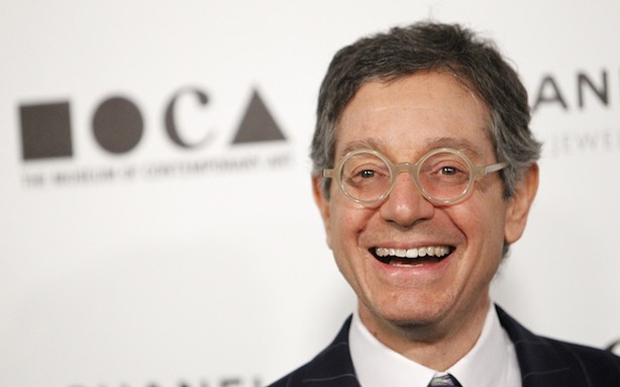
MOCA's Jeffrey Deitch fights back against critics
"It's a wrong idea that to be important you've got to be deadly serious and academic," says "embattled" director
Jeffrey Deitch, the director of MOCA and one of the most controversial people in the US artworld right now, has been defending his tenure at the museum following the abrupt and high-profile departure of it's curator Paul Schimmel last month. MOCA board members including John Baldessari, Ed Ruscha, Catherine Opie and Barbara Kruger resigned from the museum in the wake of his departure and more than 1,500 people signed an online petition calling on the museum to hire a new chief curator and former UCLA chancellor and onetime MOCA director Charles Young urged Eli Broad, the billionaire philanthropist who is MOCA's chief sponsor, to get rid of Deitch.
Deitch has been silent on the issue until the weekend when he broke his silence in an interview with the LA Times. In the interview Deitch rejects the idea that he's courted 'celebrity sizzle' and populist appeal at the expense of serious scholarship, claiming that museum audiences have changed and that he's merely reflecting that change.
in the interview Deitch hit back at his critics saying the new MOCA audience are "not the people who make a living as artists, art critics or professional art collectors, the traditional MOCA audience."
"These are people who hear about a great new film they want to go to. They hear that there's a terrific new fashion store that's very cool — they want to go there. They don't differentiate between these cultural forms," he told the Times.
However, the former art advisor and dealer was far from feisty in the interview. "I'm embattled," he said in a tone the writer described as more sorrowful than angry. "Your average cultured reader, reading the L.A. Times, thinks that I've destroyed the museum, that I've dismantled all intelligence from the program, that we're doing nothing serious, that we're showing, like, celebrity portraits or something, that nobody on the staff gets along with me. And that is not what's happening here."
Deitch's critics have pointed to not only "Art in the Streets" - MOCA's exhibition on the history of graffiti and street art but also a show devoted to art from the late actor Dennis Hopper, and a multimedia project in which actor James Franco paid deconstructionist tribute to Rebel Without a Cause."It's a wrong [idea] that in order to be important you've got to be deadly serious and academic," Deitch said "Art in the Streets was serious art history."
Deitch believes that a generational shift is opening new directions for contemporary art museums. He wants MOCA to be at the intersection of "these giant cultural trends that span innovation in art, music, fashion and often bubble up from underground subcultures."
In the piece Art In The Streets co-curator Rose points out that other museums are adopting strategies similar to MOCA's to entice younger crowds. "You see this all the time, with the replacement of CEOs, with an old guard stepping down and bringing in a young guard to keep something relevant," Rose says. Read the whole story in the LA Times.